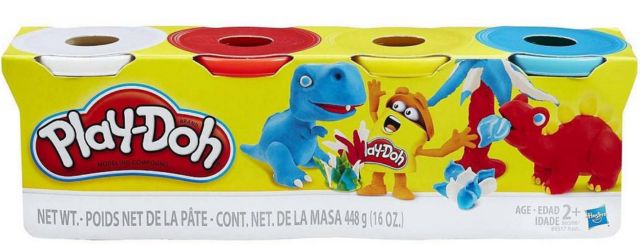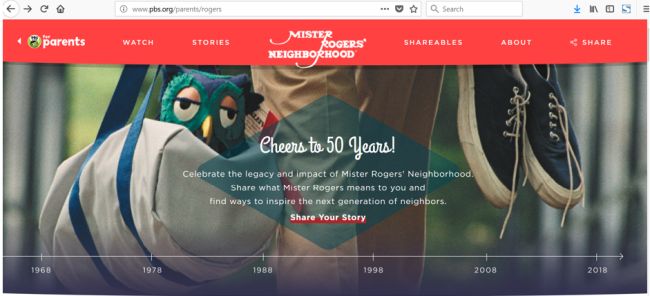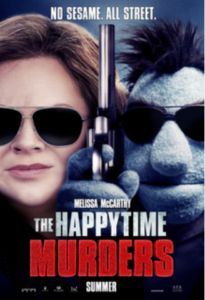Maybe it's just because I am about to go on vacation with seven children under the age of 11 (and their parents), but it seems a lot of trademarks from my childhood have been making appearances in the news recently.
Just last month, Hasbro, Inc. obtained a federal trademark registration (Reg. No. 5,467,089) for the scent of Play-Doh. The mark is described as the "scent of a sweet, slightly musky, vanilla fragrance, with slight overtones of cherry, combined with the smell of a salted, wheat-based dough." N.B.: You don't always have to hire a sommelier to draft the description of your scent marks. On the other hand, I'm not sure how I would have described it (though I readily agree it is recognizable). I am going to have to borrow someone's Play-Doh to see if my olfactory senses are sharp enough to detect the 'cherry overtones.'

Scent marks are non-traditional marks, and the examining attorney required Hasbro to prove acquired distinctiveness to obtain the registration. Generally, a substantial showing of acquired distinctiveness is required to demonstrate that a scent is a mark. TO carry this heavy burden, Hasbro introduced hundreds of pages of evidence to prove that the scent functioned as an indicator of source. The evidence included the number of units of product sold (and its weight) as well as length of use and unsolicited media coverage referencing the scent of the product. The examining attorney accepted this evidence and allowed the application to publish for opposition. Nobody opposed, so the registration issued in May.
The Play-Doh scent is recognizable enough to inspire a cologne spray, which was released under license to celebrate the compound's 50th anniversary.

Smells like childhood spirit.
There are not many scent marks registered with the US PTO. Of those that have registered or been the subject of TTAB proceedings, most involve conventional scents readily described by a single word (eg, orange, peppermint, cherry). While Play-Doh's scent mark includes references to vanilla and cherry overtones, the total scent is more complicated than a single word could communicate. It would be interesting to hear whether this raises any particular enforcement challenges.
In other nostalgic news, trademarks associated with two childhood television shows have been in the news recently.
Just last week "Won't You Be My Neighbor," the documentary about Fred Rogers and his television show, "Mister Rogers' Neighborhood," opened in theaters around the country. I have not seen the film, but cannot help thinking that it would make the perfect counterweight to the daily news.

It is completely reasonable to change into a sweater and
sneakers at work.
Even Fred Rogers did this.
Imagine all the goodwill packed into the MISTER ROGERS' NEIGHBORHOOD mark. The McFeely-Rogers Foundation owns federal trademark registrations for that mark for use with a variety of goods and services (including education and entertainment services) so that even though the show is off the air, Fred Rogers' legacy lives on. Although Fred Rogers has passed away and his show is no longer on the air, generations of children who formed his television audience remember (and hopefully carry on) the lessons of his television show.

PBS is celebrating the 50th year of the program's inception.
The other childhood television show in the news recently is Sesame Street. The trailer for the movie "Happytime Murders" was recently released. The movie, scheduled for release in August, is described by Wikipedia as a 'puppet crime-comedy' film and is directed by Brian Henson, the son of Jim Henson, famous for Sesame Street and The Muppet Show. The movie is rated R and puppets in the movie behave badly. The tag line on the trailer "No Sesame. All Street." grabbed the attention of the Sesame Workshop, which sought a temporary restraining order to prevent the STX defendants from using the tag line to promote the movie.

Sesame argued that the STX defendants' use of the tag line 'No Sesame. All Street.' evoked Sesame's SESAME STREET mark and confused consumers into believing that Sesame supported the movie. The STX defendants countered by saying the tag line clearly disclaims affiliation with Sesame and does not function as a mark.
The judge denied Sesame's application for a TRO. Though that left Sesame with the option of pursuing preliminary and permanent injunctions, it chose to dismiss the case voluntarily without prejudice.
These marks, the scent of PLAY-DOH, MISTER ROGERS' NEIGHBORHOOD, and SESAME STREET, have been around for 50+ years. These brands exert powerful influence over the children who encounter them and that influence continues long after the children have ostensibly become adults. The goodwill of these brands continue to exert power over us, evoking creativity, kindness, and thoughtfulness. Let's hope those lessons continue to exert power over us as well.
The lawyers at Trademarkology provide trademark registration services backed by the experience and service of one of the nation's oldest law firms. Click here to begin the process of protecting your brand name with a federally registered trademark.
The content of this article is intended to provide a general guide to the subject matter. Specialist advice should be sought about your specific circumstances.
